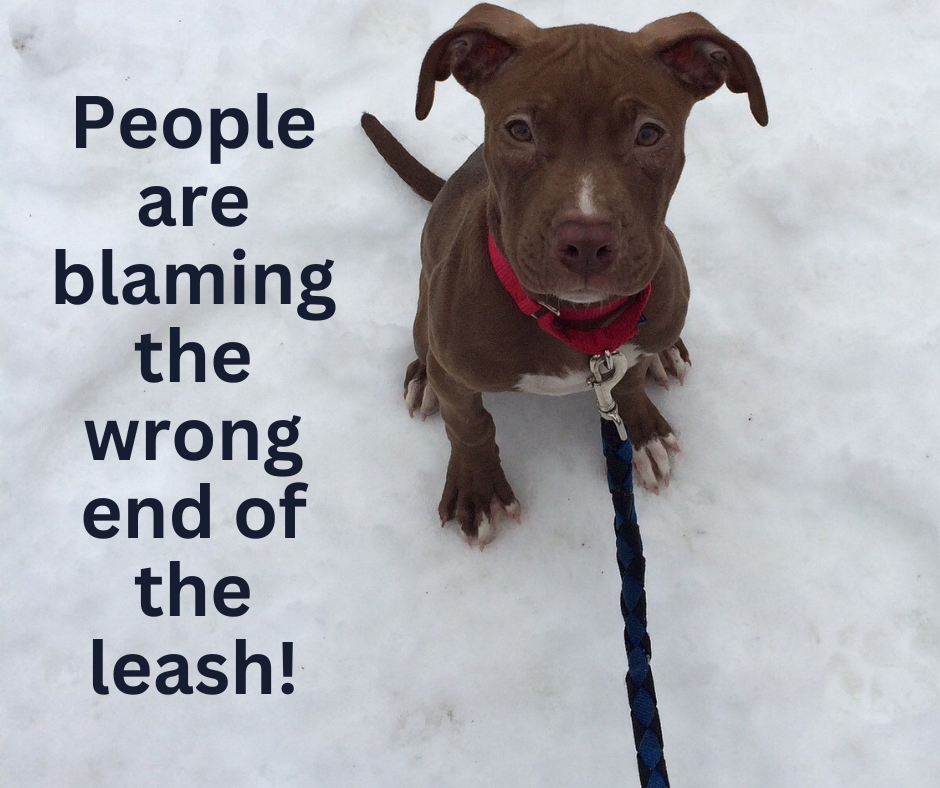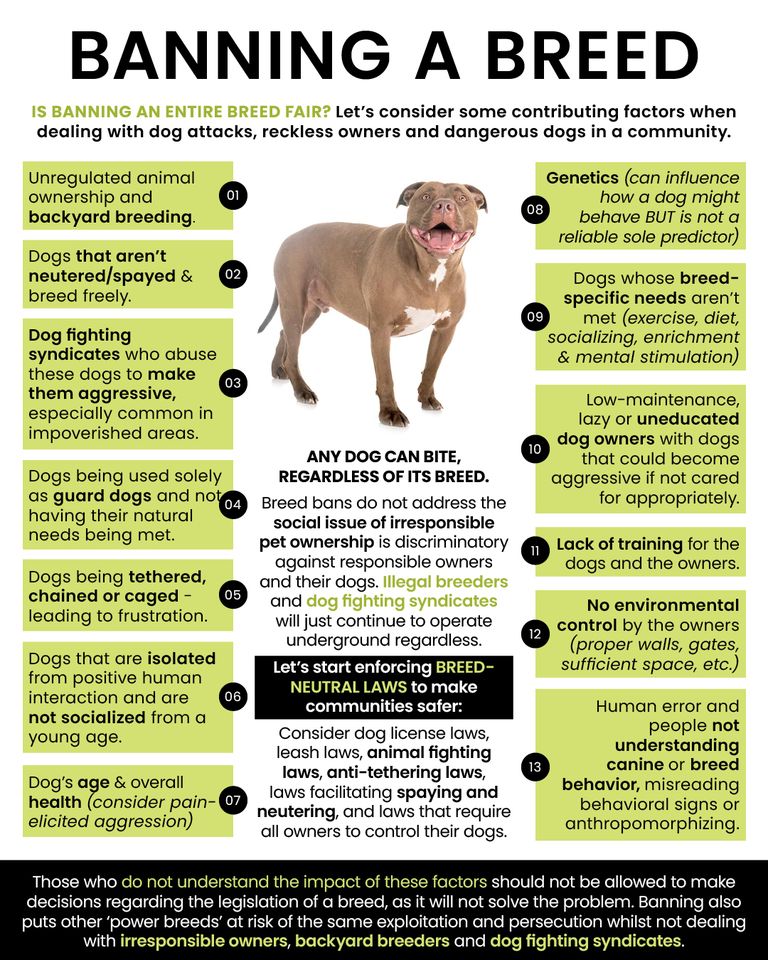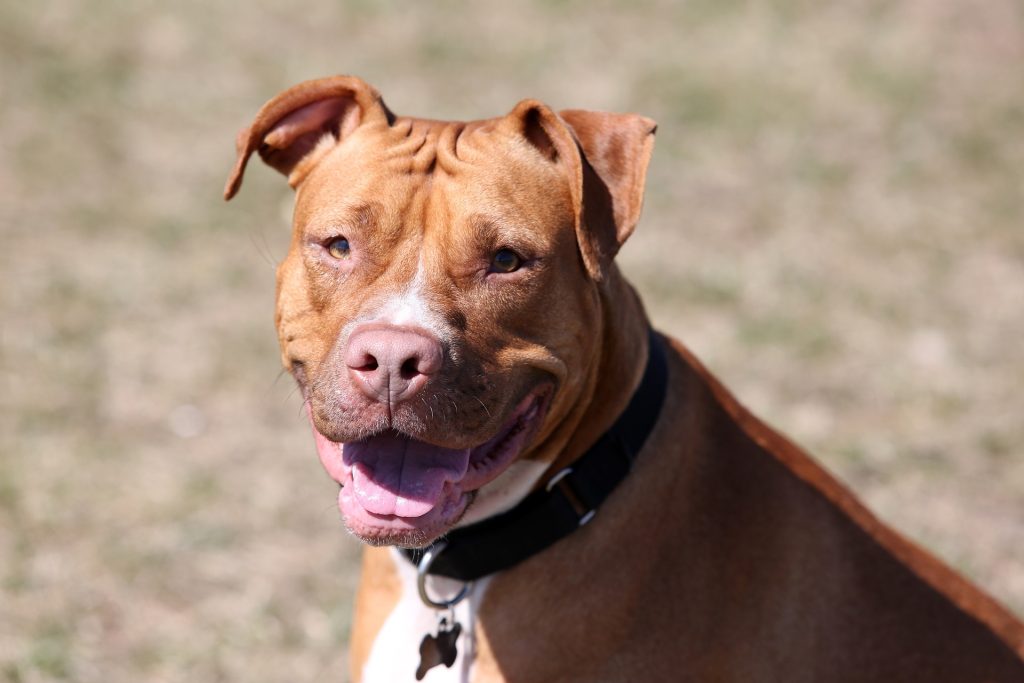
A BAN ON PITBULLS IS NOT THE SOLUTIONS TO DOG ATTACKS BECAUSE ANY DOG CAN BITE AND ANY DOG CAN BE TAUGHT TO BE AGGRESSIVE.
After reports of a Pitbull attack killing a child of the owner and another killed by the neighbour’s dog, a massive uproar began and the call for a Pitbull ban went viral. Chaos is unfolding around us while many people are still unaware of the massive crisis surrounding these Pitbull breeds (and others) and sadly thousands of innocent animals, will pay with their lives.
This chaos includes:
- Petitions for a ban.
- Petitions against a ban.
- Dog trainers’ ads claim they can handle these breeds.
- Scams with financial incentives for information on Pitbulls.
- Theft and brutal killings of these animals.
- Deliberate injury of these animals.
- Sketchy characters want to visit shelters and see the available dogs.
- Media statements and stories are being sensationalized.
- Heated social media debates.
- Mass surrender of these dogs to shelters.
- Animals are being abandoned.
- Post from responsible and irresponsible Pitbull owners and more.
Our condolences to the families that have lost loved ones because of irresponsible owners. I agree with Hannah Winkler (MP for the DA) when she says: “This loss of life could have been avoided had the government adopted national regulations on the breeding and keeping of dogs, especially power breeds, in response to the call from civil society and South Africans that have been voiced for years.”
Pitbulls are surrendered to various organizations all over SA in high numbers like the 49 Pitbulls in only two days at Bloemfontein SPCA. Some people surrender the Pitbulls because they fear their own animals and other owners because their neighbours and community are threatening to kill their dogs. Sadly, chances are high that all these surrendered animals will have to be euthanized (humanely killed) because what do you expect them to do with hundreds if not thousands of power breeds being surrendered? We already don’t have enough homes for all the animals, never mind good homes. Shelters are overwhelmed!
I agree with Rustplaas dog shelter that just as we shouldn’t make blanket statements that stereotype an entire group of people based on the actions or crimes committed by a few individuals, we should also not villainize/assume all dogs of a specific breed are “vicious, unpredictable and violent” based on the actions of a few when there are many who aren’t? You have to treat each dog as an individual and consider their genetics, history, needs, socialization, environment, training, and the situation as a whole.
This week’s article is a long one, but such an important one and I am just touching on the basics here. Let’s talk about the breed, behaviour, and the ban.

ABOUT THE BREED
Any breed can be taught to be aggressive and any dog can bite, but the difference is that a Pitbull can do more damage than a Chihuahua. Pitbulls sadly have gotten a bad reputation over the years. Pitbulls and other power breeds became “trendy” and gave owners a sort of “street credit”.
I don’t believe the “breed” is the problem, but many of those who own and breed them are, especially when they do not meet their needs. Genetics does play a role, but with the right owners and when all their needs are being met they thrive. You have to understand the breed as with any species or animal. The lack of education among owners and the public, poor law enforcement, and lack of accountability don’t help either.
When I say Pitbull, most people get a certain picture in their mind, however, the modern-day Pitbull label is a generic term used to describe a certain type of dog based on how they look, so their physical appearance and not their DNA. It usually includes medium-sized dogs with short hair and the physical appearance of bulldog-type breeds. According to www.pitbullinfo.org, “the American Pitbull Terrier (APBT) is the only formal breed with the term “Pitbull” in its name, but there are four breeds that are commonly included in the modern Pitbull-type category – the American Pitbull Terrier, American Staffordshire Terrier, Staffordshire Bull Terrier, and the American Bully.
However, there are easily over 20 other unique breeds and even more mixed breeds that share the same or similar physical characteristics that are common to dogs included in the pitbull-type category.” Another term frequently used is “power breeds”.
To understand a breed and their behaviour better, you need to understand what they were originally bred for because we can’t deny genetics even though that is only one of many factors that influence behaviour. So, what were Pitbulls historically bred for? They were bred for blood sports to “bait” bulls and bears. When that was banned, they were used for dog fighting and the breed only later became companion animals. The breed had a rough start sadly.
These animals need sufficient enrichment, exercise and space, strong gates, and high walls and they can easily be aroused. They like rough physical play, grabbing, pulling, jumping, and biting because that is what they were bred for. The very traits they were bred for are usually the same behavioural “issues” that make it more challenging to live with these “unemployed” dogs as Canineology describes them. They are likely to show those traits, especially when aroused or frustrated and if we preserve the way they look we will preserve the way they behave most likely too. Due to their muscular build, the “tight movement” and illegal ear cropping, they can appear more threatening.
Sadly, many of them are kept for security and ego purposes and they are a popular breed to use in illegal dog fights, although not the only breed used for this. Most animal welfare organizations are against keeping any animals for security purposes. You are responsible for them, not them responsible for you. If you want security, let them sleep inside to alert you while they are safe and get a security company.
ABOUT BEHAVIOUR
“There is a tremendous amount of genetic variability within every breed – so much so that it’s not possible to make any reliable predictions about behaviour based solely on breed identification.” – Dr. Jen, veterinarian & professional dog trainer.
While a dog’s genetics can influence their behaviour, genetics do not exist in a vacuum and can develop through a complex interaction between environment (how they are treated and kept) and genetics. Nurture vs. Nature debate. Canineology explains it like this: “Genetics tells you what the dog can do, but their environment tells you what they will do.” On top of that, aggressive behaviour is complex.
Other aspects include, but are not limited to:
- Breeding practices.
- Lack of sterilizatons.
- Human error (owners, the public, and victims).
- Bad socialization.
- Insufficient enrichment.
- No proper and ongoing training.
- Poor environmental control and containment measures.
“Given the powerful impact of socialization, it’s no surprise that dogs that are chained outside, isolated from positive human interaction, or whose breed-specific needs aren’t met are more likely to attack people than dogs that are integrated into our homes and well-trained & socialized. Dogs need proper enrichment and stimulation instead of being caged or chained up – this will only lead to frustration and aggression.” – Rustplaas Dog Shelter
According to Underdogs SA Pitbull Rehabilitation Center – Pretoria Gauteng South Africa. These dogs may be animal-aggressive, but they are not human-aggressive. They will also not attack for no reason. If a dog jumped a wall or attacked, chances are very high that they were teased or provoked.
“What triggers a dog to bite?” Frustration, chaining, teasing, abuse, starvation, beating, fear aggression, pain without medical treatment, thunder, loud noises, and unknown places. All of these are triggers and when they stack, aggression can be a quick way to release the tension. Pitbulls are high-energy dogs who need a lot of exercise and stimulation. If they are tied up most of the day, where do you think all that built-up energy will go?
If a dog is aggressive our first stop is the vet, to check if the animal is not in pain or has an underlying medical condition, especially in older dogs. If there is no medical reason, the next step is to evaluate their environment and if you need help with that, please contact a qualified and ethical behaviourist (not a trainer) who is trained in aggression/power breeds and who uses fear-free training.
One of my top rules when it comes to behaviour is to never punish a growl. A growl is the dog’s way of saying they are uncomfortable with the situation and need your help. If you punish it, as most people do, they will eventually skip the growl and go straight to a snap or bite. This could have been prevented if you listened and helped when they growled.
Sterilization is also important. When you have a female in heat, males’ behaviour will change and they may be more aggressive. It doesn’t come as a surprise that most of these surrendered animals are not spayed or neutered which can contribute to behaviour and fuels the massive overpopulation crisis we have been dealing with for years.

BANNING PITBULLS IS NOT THE SOLUTION TO DOG ATTACKS!
Most importantly, a ban will not solve the underlying problem, which is irresponsible owners and uncontrolled breeding. We need better education and accountability and asking nicely has not worked so far. Banning these breeds will lead to the breeding of other similar breeds or the breeding will go “underground” as dog fights have already done.
Rustplaas Dog Shelter shares the following: “It does not fix the social issue of irresponsible and uneducated pet owners, or the large impact breeders and dog fighting syndicates where these dogs are exploited, provoked and abused to become aggressive. Banning only gives a community a false sense of security without fixing the problems.”
The ignorant people and groups pushing the ban and causing mass hysteria, do not care about the animal and they are demonizing the dog/breed when the owners are at fault. We need people who are objective and care about all lives to be involved in legislation. We need people who are educated on this topic, which the ban pushers are clearly not.
Sensationalist reporting from the media is being used at the expense of lives and it is causing a frenzy with a clear lack of reporting on how the government could have prevented this if they listen to those of us who have been warning about it for years. I am sure stories will be sensationalized further or possibly lied about to get this ban and I think our current government is likely to support it.
What we need is stricter laws, better law enforcement, compulsory sterilization, licenses to own them (well any animal) or sell them, and responsible pet ownership (accountability). That said, I would rather see a breed go extinct than see the suffering they endure, but then it would be for their sake not only for humans’ sake.
I agree with the NSPCA that this petition is leading to the demonizing of Pitbulls, while it should focus on finding a humane and cohesive way forward to protect the human and animal victims in this issue.

TO OWNERS OR PROSPECTIVE GUARDIANS OF PITBULLS
Let’s start by saying that there are good Pitbull owners, but Pitbull owners need to be extra careful currently because these dogs are under a microscope & a ban on them is very possible.
First, so your animal is safe because currently, cruel and uneducated people are deliberately and brutally hurting them apart from the regular dog fighting cruelty. Take extra precautions, better secure your yard, put up cameras, go for behaviour training if needed, meet all their needs, and more. If at all possible they should not be seen from the street. Theft of these breeds has always been high, but there will certainly be an increase.
Yes, you might have to spend more money and go through more effort to protect your dog. If you don’t want to, then you are exactly the owners who should not enjoy the privilege to own a Pitbull or other animal.
Secondly, you need to take extra precautions because if your dog gets out, they will be part of the evidence to support the ban.
These breeds are not for the average Joe owner. If you really want to be a guardian (owner) of such a breed, do your homework, and make sure you can meet all their needs, always. Most of all adopt one from a reputable organization and please don’t support breeders. There are many breed-specific organizations.
I can’t begin to explain my and others’ frustration toward breeders and I wish breeders would grasp the effect of the overpopulation crisis. The fact that they continue to exploit animals for money and or status shows they don’t really care about the rest. If you can do the maths, around 2800 healthy animals have to be put down every day in SA because there are just not enough homes, never mind good homes. Even if you get a good home for the animal you sell, I doubt you know what a good home is, it means others are still losing their lives because of you.
You are breeding them faster than we can rescue them. Some breeders do sterilization contracts, but it is certainly not because they care about the crisis, but rather their bloodline. Most of them don’t do home checks and even if they do, none of them volunteer in animal welfare and know what we look for. It is not just about a good home, but the right placement for that animal.
If your dog is aggressive and you have worked with a behaviourist or two (not a trainer) that couldn’t sort out the underlying issue, then consider putting them to sleep.
Certain people are going to shelters to “adopt” a Pitbull or to see the kennels. We don’t think it is because they want one. The organizations need to be extra vigilant now and some even halted adoptions to protect the animals. So, you who sell and give them away for free might now be giving them to someone who will kill them. Are you willing to take that risk with a sentient being?
If you buy a Pitbull in South Africa or see one that has their ears cropped, you can be sure that it was done illegally by a veterinarian, the owner, the breeder, or someone else. It may only be done for a medical reason by a qualified veterinarian. Ear cropping and tail docking of dogs (if not for medical reasons) is cruel and a prosecutable crime in South Africa. This procedure is also prohibited in the veterinary code of practice. Please contact your nearest SPCA if you are aware of, or have witnessed, any incidents of ear cropping, dog fighting, cruelty, or neglect of these animals in your communities.
Injuring any animal (even neglect) is considered cruelty and illegal under South African law and should be reported to your nearest SAPS and SPCA.
IF YOU ARE SCARED OF PITBULLS OR OTHER ANIMALS
Education on how to care for these animals is key. Children and many adults need to learn how to respect the dogs and their personal space too. A dog is not your toy, canvas to paint on, pony to ride on, or bed or pillow to sleep on. I also believe dog bites are 100% preventable!
If you fear this “breed” or any dog, learn about their body language to help address the fear. If any dog approaches me…. I stand still, don’t make eye contact, don’t try to touch them or talk to them, don’t scream or make sudden movements. I let them sniff which is normal behaviour and they will most likely leave if not provoked. Screaming, shouting, sudden movements, and hurting the animal will only worsen the situation.
Middelburg SPCA writes:
- If you, or your family, are afraid of your dog, for any reason, regardless of breed, please surrender them to the SPCA. There is no cost (any donations are welcome), and no judgment comes with surrendering a pet to the SPCA and they will never turn away any animal. If you need advice or assistance with an animal you are afraid of, please contact your local SPCA to advise.
- If you own a Pitbull purely to guard your property, rather surrender them to your nearest SPCA. If you have a Pitbull tied up as a “guard dog”, you are setting yourself up for tragedy, and putting your dog in a very unsafe situation.
- If you become aware of cruelty to a Pitbull, or if tensions are rising and you believe someone intends to harm a Pitbull (or any animal for that matter) please contact your nearest SPCA. You can find your nearest SPCA here.
Also, read how to choose which animal welfare organization to support.
Asking people nicely to take care of their animals, to keep them safe and not breed when we have a massive overpopulation crisis, doesn’t seem to work, so legislation is the only way. We are excited and fully support the DA’s task team to address this issue with the help of other organizations through legislation. As a country, we can unite in fighting for responsible pet ownership regulations to keep both the animals and the public safe.
Next week we will look at some of the important topics for this time of year!
WHEN YOU KNOW BETTER, DO BETTER!